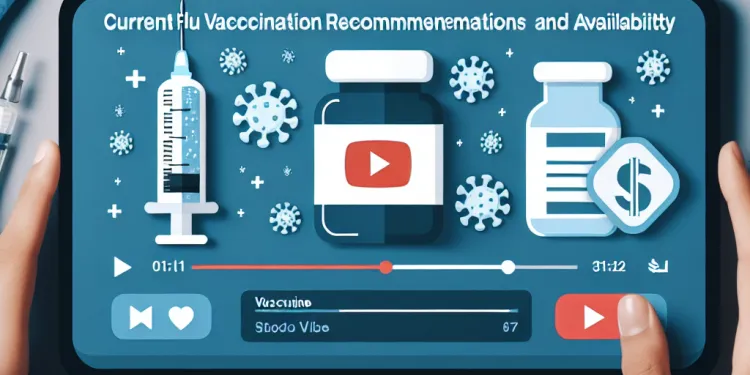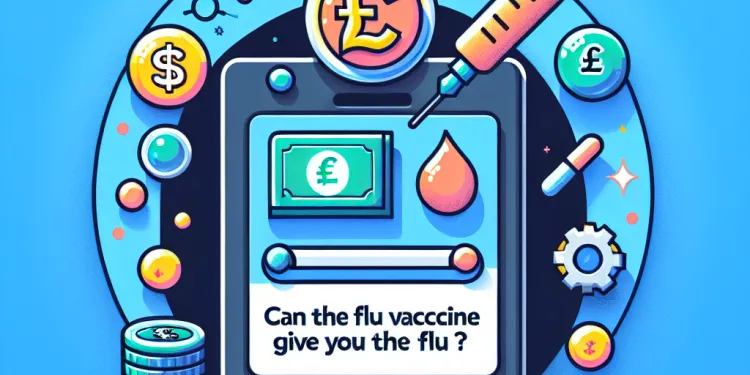
Find A Professional
More Items From Ergsy search
-

What steps can improve vaccine effectiveness?
Relevance: 100%
-

What should I do if I experience side effects from a vaccine?
Relevance: 98%
-

What are the common side effects of vaccines?
Relevance: 94%
-

Are vaccines safe?
Relevance: 87%
-

Are there any side effects to the flu vaccine?
Relevance: 86%
-

How effective is the flu vaccine?
Relevance: 86%
-

What are the different types of vaccines?
Relevance: 82%
-

Can everyone receive vaccines?
Relevance: 78%
-

Can vaccines cause the diseases they protect against?
Relevance: 75%
-

What is a subunit vaccine?
Relevance: 73%
-

How long does it take for the flu vaccine to become effective?
Relevance: 72%
-

Can adults receive the MMR vaccine?
Relevance: 70%
-

Current Flu Vaccination Recommendations and Availability
Relevance: 69%
-

What is a live-attenuated vaccine?
Relevance: 69%
-

Can children receive the flu vaccine as a nasal spray?
Relevance: 68%
-

What are vaccines and how do they work?
Relevance: 67%
-

When is the best time to get the flu vaccine?
Relevance: 66%
-

Can the flu vaccine give me the flu?
Relevance: 66%
-

Can the flu vaccine give you the flu?
Relevance: 65%
-
Does the flu vaccine protect against COVID-19?
Relevance: 65%
-

How effective is the MMR vaccine?
Relevance: 65%
-

How does vaccination affect measles rates?
Relevance: 65%
-

Children's Vaccination Schedule
Relevance: 64%
-

Why do vaccinated people sometimes still get sick?
Relevance: 64%
-

Can pregnant women get the flu vaccine?
Relevance: 64%
-

Why do some vaccines require multiple doses?
Relevance: 63%
-

What are the side effects of bowel cancer treatment?
Relevance: 60%
-

What is the year 8 HPV vaccine? | NHS
Relevance: 60%
-

What if I'm not eligible for a free flu vaccine, can I still get vaccinated?
Relevance: 60%
-

How do vaccines work?
Relevance: 60%
-

Do vaccines work against new COVID-19 variants?
Relevance: 60%
-

Is the flu vaccine free for everyone in the UK?
Relevance: 60%
-

Surge in HPV Vaccination Rates Among Young Women in the UK
Relevance: 59%
-

Flu vaccinations for people with a learning disability
Relevance: 59%
-

What should I do if I experience severe side effects from Wegovy?
Relevance: 59%
-

What are the common side effects of Ozempic?
Relevance: 59%
-

Has a vaccine been developed against Nipah Virus?
Relevance: 59%
-

Who should get the HPV vaccine?
Relevance: 58%
-

Why are vaccines important?
Relevance: 58%
-

Is there a vaccine for the Zika virus?
Relevance: 57%
Understanding Vaccine Side Effects
Vaccines are crucial for protecting individuals and communities from infectious diseases. However, like any medication, they can cause side effects in some people. Most side effects are mild and temporary, but understanding what to do if you experience them is important for your well-being and peace of mind.
Recognising Common Side Effects
Common side effects from vaccines include soreness at the injection site, mild fever, fatigue, headache, and muscle aches. These symptoms indicate that the vaccine is working to build protection and usually resolve within a few days. Serious side effects are rare but can include allergic reactions.
Managing Mild Side Effects
If you experience mild side effects, there are several measures you can take to alleviate discomfort. For pain or swelling at the injection site, apply a clean, cool, wet compress. For fever or discomfort, over-the-counter pain relievers such as paracetamol may be used. Ensure you stay hydrated and rest as needed. Avoid strenuous activities until you feel better.
When to Seek Medical Advice
If side effects persist beyond a few days or you experience unusually severe symptoms, contact your GP or a healthcare professional for advice. In the UK, you can also call NHS 111 for guidance. It is especially important to seek medical help if you have symptoms of a severe allergic reaction, such as difficulty breathing, swelling of the face or throat, or hives.
Reporting Side Effects
The UK has a system in place to monitor vaccine safety, known as the Yellow Card Scheme. If you experience any side effects, consider reporting them through this scheme. This helps health authorities track vaccine safety and identify any potential issues. You can report side effects online, via the Yellow Card app, or by calling the Yellow Card hotline.
Staying Informed
It is important to stay informed about the vaccines you receive. Before getting vaccinated, read the information provided with the vaccine or consult a healthcare professional to understand what to expect and how to manage any side effects. This proactive approach will help you feel more confident and prepared.
Conclusion
While side effects from vaccines can occur, they are generally mild and temporary. By knowing how to manage them and when to seek help, you can minimize discomfort and ensure that you focus on the benefits of vaccination—protecting yourself and those around you from potentially serious diseases.
Understanding Vaccine Side Effects
Vaccines help keep us safe from getting sick. Sometimes, they can cause side effects, just like other medicines. Most side effects are not serious and do not last long. Knowing what to do if you have them can help you feel better.
Recognising Common Side Effects
After getting a vaccine, some people might have a sore arm, a small fever, feel tired, have a headache, or sore muscles. These mean the vaccine is working to keep you safe. They usually go away in a few days. Serious side effects like allergic reactions are very rare.
Managing Mild Side Effects
If you have mild side effects, here are some things to help you feel better: use a cool, wet cloth on where you got the shot if it hurts or is swollen. You can take medicine like paracetamol for pain or fever. Drink plenty of water and rest. Don’t do hard exercises until you feel good again.
When to Seek Medical Advice
If your side effects last more than a few days or feel very strong, talk to your doctor. In the UK, you can also call NHS 111 for help. It's very important to get help if you have trouble breathing, or if your face or throat swells. These could be signs of a bad allergic reaction.
Reporting Side Effects
The UK has a plan to keep track of vaccine safety. It's called the Yellow Card Scheme. If you have any side effects, you can tell them about it. This helps keep vaccines safe. You can report side effects online, through the Yellow Card app, or by calling their hotline.
Staying Informed
It’s good to know about the vaccines you get. Before your vaccine, read the information that comes with it or ask a doctor if you have questions. This helps you know what to expect and how to take care of yourself if you have side effects.
Conclusion
Vaccine side effects are usually not serious and go away soon. By knowing how to deal with them and when to ask for help, you can feel better and focus on staying healthy. Vaccines protect you and others from getting very sick.
Frequently Asked Questions
What should I do if I experience mild side effects from a vaccine?
If you experience mild side effects such as a sore arm, fever, or fatigue, rest and stay hydrated. Over-the-counter pain relievers can help alleviate symptoms.
When should I contact a healthcare provider about vaccine side effects?
Contact a healthcare provider if side effects are severe, last longer than a few days, or are not what you were told to expect.
Are side effects normal after receiving a vaccine?
Yes, experiencing mild side effects such as pain at the injection site, fatigue, or low-grade fever is normal and usually indicates that the body is building protection.
What are common side effects after receiving a vaccine?
Common side effects include pain or swelling at the injection site, fever, fatigue, headache, and muscle aches.
How can I manage pain at the injection site?
You can apply a clean, cool, wet cloth over the area and use over-the-counter pain relievers to manage pain and swelling.
Is it safe to take pain relievers to manage vaccine side effects?
Yes, taking over-the-counter pain relievers like acetaminophen or ibuprofen is generally safe for managing mild side effects.
What is an allergic reaction to a vaccine?
An allergic reaction to a vaccine can include symptoms like hives, swelling, and difficulty breathing. Seek medical attention immediately if you experience these.
How soon do side effects from vaccines typically appear?
Side effects usually appear within a day or two after getting vaccinated.
Can I report severe vaccine side effects?
Yes, you can report severe side effects to your healthcare provider or use the Vaccine Adverse Event Reporting System (VAERS) in the United States.
Should I avoid getting vaccinated if I have severe allergies?
Consult with a healthcare provider to assess your risk if you have a history of severe allergic reactions before receiving a vaccine.
What should I do if I faint after getting a vaccine?
If you faint, sit or lie down and rest until you feel better. Contact a healthcare provider if you have concerns.
Can I still get vaccinated if I experienced side effects from a previous dose?
Consult your doctor to weigh the risks and benefits if you experienced side effects from a previous vaccine dose.
Are there long-term side effects of vaccines?
Serious long-term side effects are rare. Most side effects appear shortly after vaccination and last only a few days.
What should I do if I experience side effects days after vaccination?
Monitor your symptoms and contact a healthcare provider if they worsen or do not go away after a few days.
Is swelling a normal reaction to vaccines?
Yes, mild swelling at the injection site is a normal side effect of many vaccines.
What is the difference between a side effect and an adverse reaction?
Side effects are expected reactions like pain or fever, while adverse reactions are unexpected and may require medical attention.
Can I go to work if I have mild side effects from a vaccine?
If your symptoms are mild and manageable, you can go to work. However, if you feel unwell, consider resting until you feel better.
Do side effects indicate that the vaccine is working?
Yes, side effects often indicate that your immune system is responding to the vaccine.
What should I do if I experience an unusual side effect?
Contact your healthcare provider for guidance if you experience any unusual side effects post-vaccination.
Is it normal to experience side effects after each dose of a multi-dose vaccine?
Yes, it is possible to experience side effects after each dose, though they may vary in intensity.
What can I do if I feel unwell after a vaccine?
If you feel a little bit sick after your vaccine, don't worry. This can happen and it usually goes away on its own.
Here are some simple things you can do to feel better:
- Rest and get plenty of sleep.
- Drink lots of water.
- Wear comfy clothes.
- If your arm is sore, move it around gently.
If you feel very unwell or worried, talk to a doctor. They can help you.
You can also use tools like pictures or videos to help understand this better.
If you feel a little unwell, like with a sore arm, a temperature, or feeling very tired, take a break and drink lots of water. You can take medicine from the store to feel better.
When should I call a doctor about vaccine side effects?
Vaccines help keep us from getting sick. But sometimes they can make us feel a little unwell after. This is called a side effect.
Most of the time, side effects are mild and go away on their own. You might feel tired, have a sore arm, or a fever. That's okay.
You should contact a doctor if:
- You feel very sick and it doesn't get better.
- You have a high fever that won’t go down.
- Your arm gets very swollen or hurts a lot.
- You have trouble breathing or feel very dizzy.
If you need help remembering this, you can:
- Write down the signs to watch for.
- Ask someone you trust to help you.
- Use a calendar to track how you feel each day.
If you feel really sick, or if you stay sick for more than a few days, or if you feel something you didn't expect, talk to a doctor or nurse.
Do vaccines make you feel a bit unwell?
Sometimes, vaccines can cause small problems. These are called side effects. It's like a little sign that the vaccine is working in your body.
Most people feel a little sore or tired for a day or two after getting a vaccine. This is normal.
If you feel worried, talk to a doctor or a nurse. They can help you feel better.
You can also ask someone to help read and understand information about vaccines.
Yes, it's normal to feel a little pain where you got the shot. You might also feel tired or have a slight fever. This usually means your body is getting stronger.
What can happen after you get a vaccine?
Sometimes, after you get a vaccine, your body can feel different. Here are some things that might happen:
- Your arm might hurt where you got the shot.
- You might feel a little tired.
- You could get a headache.
- You might have a slight fever.
Tip: If you feel unwell, tell an adult. They can help you feel better.
Sometimes medicine can make you feel a bit unwell. You might get a sore or swollen spot where you had the injection. You could also have a fever, feel very tired, get a headache, or have achy muscles.
How can I stop the pain where I got the shot?
You can put a clean, cool, wet cloth on the area. You can also take medicine from the store to help with pain and swelling.
Can I take medicine to feel better after a vaccine?
It is okay to take medicine if you feel sore or have a fever after getting a vaccine. Make sure to follow what your doctor says. You can also:
- Rest if you feel tired.
- Drink plenty of water.
- Use a cool cloth if an area feels warm or hurts.
Yes, it is usually okay to take pain medicine like acetaminophen or ibuprofen from the store to help if you feel a bit sick.
What happens if someone is allergic to a vaccine?
Sometimes, people might have a problem after getting a vaccine. This is because their body doesn't like something in the vaccine. This is called an "allergic reaction."
If this happens, someone can feel itchy, or they might get red bumps on their skin. They might also feel like it is hard to breathe.
If you think someone has an allergic reaction, you should tell an adult. The adult can help you get help from a doctor or nurse.
Sometimes, doctors use special tools to help people who have these reactions. These might be medicines that help you feel better quickly.
Reading tools like picture books or videos can help you understand better. Ask an adult to help you find these materials.
If you get a vaccine, sometimes your body can have a bad reaction. This is called an allergic reaction. Signs of this can be:
- Itchy red spots on your skin (called hives)
- Swelling or puffiness
- Trouble breathing
If you have these signs, tell a doctor or nurse right away. They will help you feel better.
When do side effects from vaccines usually start?
Side effects from vaccines are things that might happen after you get vaccinated. These are usually mild, like a sore arm or feeling tired.
Most side effects start within 1 or 2 days after the vaccine. Some things you can do to feel better are resting, drinking water, and taking medicine like paracetamol if you're allowed.
If you are worried about side effects, tell an adult or a doctor. They can help you.
After you get a vaccine, side effects might start in a day or two.
Can I tell someone if a vaccine makes me feel very bad?
Yes, you can tell your doctor if you have strong side effects. You can also use a special tool called the Vaccine Adverse Event Reporting System, or VAERS, in the United States.
Should I avoid getting a vaccine if I have bad allergies?
If you have very bad allergies, talk to your doctor before getting a vaccine. Your doctor can help you decide what is safe for you.
Here are some tips:
- Ask questions: It is okay to ask your doctor any questions you have.
- Bring a friend: If you feel unsure, bring someone with you to the doctor.
- Write it down: Write down what your doctor says so you remember.
It's important to make sure the vaccine is safe for you. Your health is important!
If you have had bad allergies before, talk to a doctor before you get a vaccine. They can help you understand if it is safe for you.
What to Do If You Faint After a Vaccine
If you faint after a vaccine, do not worry. Here is what you should do:
- Sit or lie down. Put your head between your knees if sitting.
- Stay until you feel better and not dizzy.
- Tell a doctor or nurse what happened.
- Drink some water.
It helps to take deep breaths and stay calm.
Ask a friend or family member to stay with you.
If you feel like you might faint, sit down or lie down right away. Stay there until you feel okay. If you are worried, talk to a doctor or nurse for help.
Can I get another vaccine if I had side effects before?
If you had side effects after your last vaccine, you might still be able to get another one. Talk to your doctor or nurse about it. They can help you decide what is best.
Here are some things you can do:
- Tell your doctor exactly what side effects you had.
- Ask if there is a different vaccine you can try.
- Tell your doctor if you have allergies or other health problems.
You can also use pictures or stories to help you understand what vaccines do and why they are important. These tools can make it easier to talk about your health.
Talk to your doctor if you had problems after your last vaccine. Your doctor can help you decide what to do.
Do vaccines have side effects that last a long time?
Bad effects that last a long time are not common. Most times, if you feel bad after a vaccine, it starts soon but goes away in a few days.
If you have trouble reading, you can ask someone for help. Also, reading tools or apps can make this easier.
What to Do if You Feel Unwell After Your Vaccine?
If you feel sick a few days after your vaccine, stay calm. Some people feel dizzy or tired. This can happen to other people too. Here is what you can do:
- Rest: Lie down and relax.
- Drink water: Have a lot of water, juice, or tea.
- Use medicine: You can take medicine like paracetamol if you feel pain or have a fever. Ask an adult for help with this.
- Talk to someone: Tell your parent, guardian, or a nurse. They can help you feel better.
Remember, most people feel better soon! If you still feel unwell, it is important to see a doctor.
Keep track of how you feel, and if you start to feel worse or if you're not feeling better after a few days, talk to a doctor or nurse.
Do vaccines make your arm swell?
Yes, your arm can swell where you got the vaccine. This is normal.
Here are some ways to help you feel better:
- Put a cool, wet cloth on your arm.
- Move your arm around gently.
- Talk to a grown-up if it hurts a lot.
Yes, it is normal for your skin to puff up a little where you got a vaccine shot.
How are a side effect and an adverse reaction different?
A side effect is something that happens when you take medicine, but it is usually not bad. Like a headache or feeling sleepy.
An adverse reaction is when you take medicine and something bad happens, like a rash or feeling very sick. It is important to tell a doctor if this happens.
You can use pictures or talk to someone you trust to help understand. Always ask questions if you are not sure.
Side effects are things we expect, like feeling pain or having a fever. Adverse reactions are surprises that might mean you need to see a doctor.
Can I go to work if the vaccine makes me feel a little unwell?
If you feel a bit unwell after your vaccine, you might be wondering if it's okay to go to work. Mild side effects can be normal.
Here are some helpful tips:
- Rest if you feel tired.
- Drink plenty of water.
- Tell someone you trust how you feel.
If side effects are mild and you feel okay, you can go to work. But if they get worse, talk to a doctor or a nurse.
If you feel okay, you can go to work. But if you feel sick, it's a good idea to rest until you feel better.
Do side effects mean the vaccine is working?
Sometimes, after you get a vaccine, you might feel different. This is called a side effect. Here are some things you might notice:
- A sore arm where you got the shot
- A headache
- A fever
- Feeling tired
These side effects are usually okay. They show that your body is learning how to fight the germs. That's what a vaccine does. It helps your body to protect you.
If you feel side effects, tell a grown-up you trust. They can help you. Remember, not everyone has side effects. The vaccine can still work even if you don't feel anything.
Here are some things that can help you feel better:
- Rest and sleep
- Drink lots of water
- Talk to a grown-up if you feel worried
If you have questions, talk to a doctor or nurse. They know a lot about vaccines.
Yes, side effects show that your body is working with the vaccine.
What should I do if I feel a strange side effect?
If you feel something strange after taking medicine, tell an adult you trust, like a parent or caregiver. Here are some steps you can follow: 1. **Talk to a Doctor:** Ask a doctor or nurse what to do. They know how to help. 2. **Tell Someone:** Let someone you trust know how you're feeling. They can help you get help. 3. **Write it Down:** Write down how you feel and what happened. This can help the doctor understand. 4. **Keep Calm:** Try to stay calm and breathe. It’s important to not get too worried. You can also use tools like picture charts or apps that help you show and say what you feel.If you feel something strange or bad after getting your vaccine, talk to your doctor. They can help you.
Is it normal to feel unwell after getting each shot of a vaccine?
Yes, you might feel different after each dose. How you feel can change each time.
Useful Links
- Ergsy carfully checks the information in the videos we provide here.
- Videos shown by Youtube after a video has completed, have NOT been reviewed by ERGSY.
- To view, click the arrow in centre of video.
- Most of the videos you find here will have subtitles and/or closed captions available.
- You may need to turn these on, and choose your preferred language.
- Go to the video you'd like to watch.
- If closed captions (CC) are available, settings will be visible on the bottom right of the video player.
- To turn on Captions, click settings .
- To turn off Captions, click settings again.
More Items From Ergsy search
-

What steps can improve vaccine effectiveness?
Relevance: 100%
-

What should I do if I experience side effects from a vaccine?
Relevance: 98%
-

What are the common side effects of vaccines?
Relevance: 94%
-

Are vaccines safe?
Relevance: 87%
-

Are there any side effects to the flu vaccine?
Relevance: 86%
-

How effective is the flu vaccine?
Relevance: 86%
-

What are the different types of vaccines?
Relevance: 82%
-

Can everyone receive vaccines?
Relevance: 78%
-

Can vaccines cause the diseases they protect against?
Relevance: 75%
-

What is a subunit vaccine?
Relevance: 73%
-

How long does it take for the flu vaccine to become effective?
Relevance: 72%
-

Can adults receive the MMR vaccine?
Relevance: 70%
-

Current Flu Vaccination Recommendations and Availability
Relevance: 69%
-

What is a live-attenuated vaccine?
Relevance: 69%
-

Can children receive the flu vaccine as a nasal spray?
Relevance: 68%
-

What are vaccines and how do they work?
Relevance: 67%
-

When is the best time to get the flu vaccine?
Relevance: 66%
-

Can the flu vaccine give me the flu?
Relevance: 66%
-

Can the flu vaccine give you the flu?
Relevance: 65%
-
Does the flu vaccine protect against COVID-19?
Relevance: 65%
-

How effective is the MMR vaccine?
Relevance: 65%
-

How does vaccination affect measles rates?
Relevance: 65%
-

Children's Vaccination Schedule
Relevance: 64%
-

Why do vaccinated people sometimes still get sick?
Relevance: 64%
-

Can pregnant women get the flu vaccine?
Relevance: 64%
-

Why do some vaccines require multiple doses?
Relevance: 63%
-

What are the side effects of bowel cancer treatment?
Relevance: 60%
-

What is the year 8 HPV vaccine? | NHS
Relevance: 60%
-

What if I'm not eligible for a free flu vaccine, can I still get vaccinated?
Relevance: 60%
-

How do vaccines work?
Relevance: 60%
-

Do vaccines work against new COVID-19 variants?
Relevance: 60%
-

Is the flu vaccine free for everyone in the UK?
Relevance: 60%
-

Surge in HPV Vaccination Rates Among Young Women in the UK
Relevance: 59%
-

Flu vaccinations for people with a learning disability
Relevance: 59%
-

What should I do if I experience severe side effects from Wegovy?
Relevance: 59%
-

What are the common side effects of Ozempic?
Relevance: 59%
-

Has a vaccine been developed against Nipah Virus?
Relevance: 59%
-

Who should get the HPV vaccine?
Relevance: 58%
-

Why are vaccines important?
Relevance: 58%
-

Is there a vaccine for the Zika virus?
Relevance: 57%